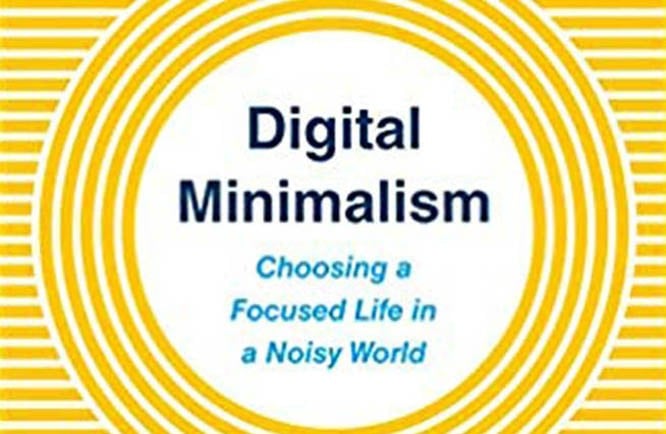
Cal Newport introduces a philosophy for the use of technology amidst the many digital influences of a contemporary workday

It’s one of the greatest digital age questions. What is the optimum level of connectivity that ensures that one keeps pace with the time, while at the same time not giving the entirety of the control over one’s life to technological strings?
In Digital Minimalism: Choosing a Focused Life in a Noisy World, Cal Newport echoes the largely reverberating claim that undivided attention produces far better results amidst the many digital influences that a modern era workday comprises, and provides requisite substantiation.
The thesis takes on the 21st-century paradox: technology aids our capacity to do work, while at the same time productivity tends to be higher when it remains unhindered by the technology that we rely on at our workplaces. That’s a direct clash between technology at work and personal spheres.
Over the years, with the growing prevalence of smartphones, social media and IoT, the impact that these technological advances have in everyday life is self-evident. So is the impact on our ability to deliver - which is hindered by pop-ups and distractions, not only during designated workhours but afterwards as well, increasingly metamorphosing into the world’s most wide-spread addiction.
"Until recently, it was assumed that addiction only applied to alcohol or drugs: substances that include psychoactive compounds that can directly change your brain chemistry. As the twentieth century gave way to the twenty-first, however, a mounting body of research suggested that behaviors that did not involve ingesting substances could become addictive in the technical sense defined above."
Digital Minimalism is Newport’s take on the consequences of one’s decisions -- both active and passive -- in the virtual world, where the ‘wild tangle’ of tools and entertainments dictate what we do and how we feel. The author proposes the tangibles for the erstwhile unquantifiable idea of ‘moderation’ that everyone seems to be seeking these days, without having figured out the requisite volumes.
The book is a how-to manual for the use of technology wherein one fundamentally reduces the time spent on the internet, concentrates on a set of selective exercises, activities and hobbies -- completely shunning any-and-every-thing that could self-manifest as a distraction during that time, distractions that prey on the growing human need for digital validation.
The author proposes solutions that don’t focus on the complete rejection of technology, but a mere realignment. The goal is to make readers readdress that age-old -- and yet menacingly current -- adage that technology is to aid and serve us, not for us to be held slaves by it.
What makes the arguments in the book more effective is the fact that more than just being a mélange of theories, it narrates examples from the lives of digital minimalists who have successfully managed to take charge of their lives and break free from the other side of technology.
At a time when not checking one’s smartphone for updates on social media every few minutes has become almost unthinkable, Newport unveils case studies catering to a subculture of individuals who have made it possible for them to use technology with intent, instead of using it involuntarily.
The book underlines examples from the lives of Amish farmers to programmers and software developers in the Silicon Valley. These then assure us that there’s no demographical handicap in the bid to control the use of technology -- whether community based or professional. The examples include those people who, despite having their entire careers hinge around technology, have successfully managed to control the ‘noise’ that comes with its excessive usage.
The author cites history as well. This includes the book going as far back as Abraham Lincoln, and his struggle for solitude -- which the author believes is essential for every human being -- to drive home its point.
Newport crucially acknowledges the fact that common tips such as muting notifications and dedicating a few hours of the day as ‘no tech hours’ can often be of very little help, while cutting off completely may not always align with the demands of one’s personal and professional life. It argues that in actuality, a sustainable method is required towards channelising the use of technology, which it goes on to propose.
That sustainability, critical to digital minimalism, is founded on the calmness of the individuals who have to be truly in control of their lives, all the while respecting the significance of technology.
Digital minimalism takes Marcus Aurelius’ famous quote: "you see how few things you have to do to live a satisfying and reverent life?" -- and adapts it to technology’s role in the modern world. Newport asks the reader if they have what it takes to muster a leap of faith and test life without a smartphone.
Digital Minimalism Choosing a Focused Life in a Noisy World
Author: Cal Newport
Publisher: Portfolio (Penguin Random House), 2019
Pages: 304
Price: US$16.06 (Hardcover)